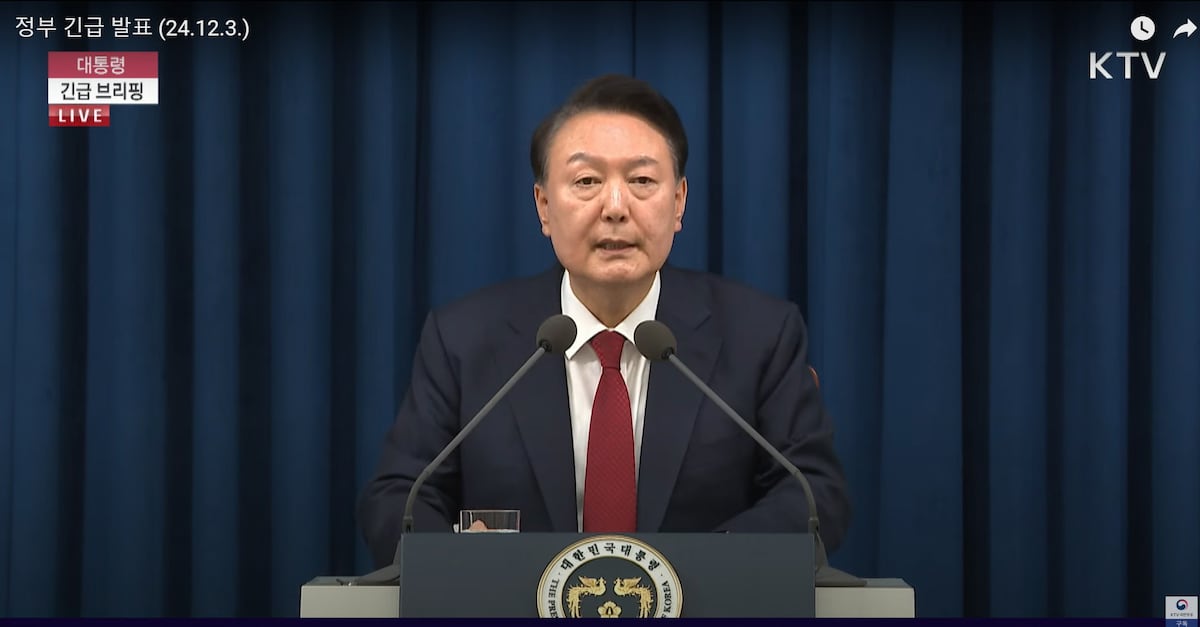South Korean President Yoon Suk Yeol declared emergency martial law on Tuesday, accusing the opposition of controlling Parliament, engaging in anti-state activities, and sympathizing with North Korea. In a televised statement late in the day, which had not been announced in advance, Yoon stated that the measure aims to eradicate “pro-North Korean forces” and “protect the democratic constitutional order.”
In an emergency session, the Parliament, with 190 of its 300 members present, approved a motion in the early hours of Wednesday demanding the lifting of martial law. Woo Son-shik, speaker of the National Assembly, confirmed that President Yoon’s declaration would be “null and void” following the resolution. Lawmakers cheered as he demanded that soldiers and police leave the Parliament grounds, according to The New York Times.
Demonstration in South Korea after martial law declared.
The move came after the main opposition Democratic Party, which has a majority in Parliament, fast-tracked a scaled-back budget bill through the parliamentary budget committee without support from Yoon’s ruling People’s Power Party (PPP), and filed impeachment motions against the state auditor and chief prosecutor, South Korea’s Yonhap news agency reported.
In Seoul, the capital, confusion reigns. Multiple videos posted on social media show clashes in front of Parliament between protesters and lawmakers attempting to enter the building, with police officers trying to block their way. Forces from the Martial Command have also started to enter the parliamentary area, according to Reuters.
The military decree, signed by Martial Law Commander General Park An-su and translated by Reuters, outlines that all political activities, including parliamentary activities, are prohibited. It also places all media and publications under the control of the Martial Law Command. “All acts that deny or attempt to overthrow the liberal democratic system are prohibited, and fake news, public opinion manipulation, and false propaganda are prohibited,” the decree states. Strikes, work stoppages, and rallies inciting social unrest are similarly banned. Violators may be arrested, detained, and searched without a warrant.
Opposition politicians reacted immediately. Lee Jae-myung, who narrowly lost to Yoon in the 2022 presidential election, called Yoon’s announcement “illegal and unconstitutional,” according to AP. Even Yoon’s party leader, Han Dong-hoon, criticized the decision as “wrong” and vowed to “stop it with the people.”
Yoon did not mention any specific threat from North Korea, his nuclear-capable neighbor, which has grown closer to Vladimir Putin’s Russia and recently provided direct military support in the war in Ukraine. Instead, the president’s speech focused on his domestic political opponents.
This marks the first time since 1980 that martial law has been declared in South Korea, a country that experienced a series of authoritarian regimes in its early history but has been considered a democracy since the 1980s.
This is a breaking story. Please refresh your browser for more updates.
Sign up for our weekly newsletter to get more English-language news coverage from EL PAÍS USA Edition
